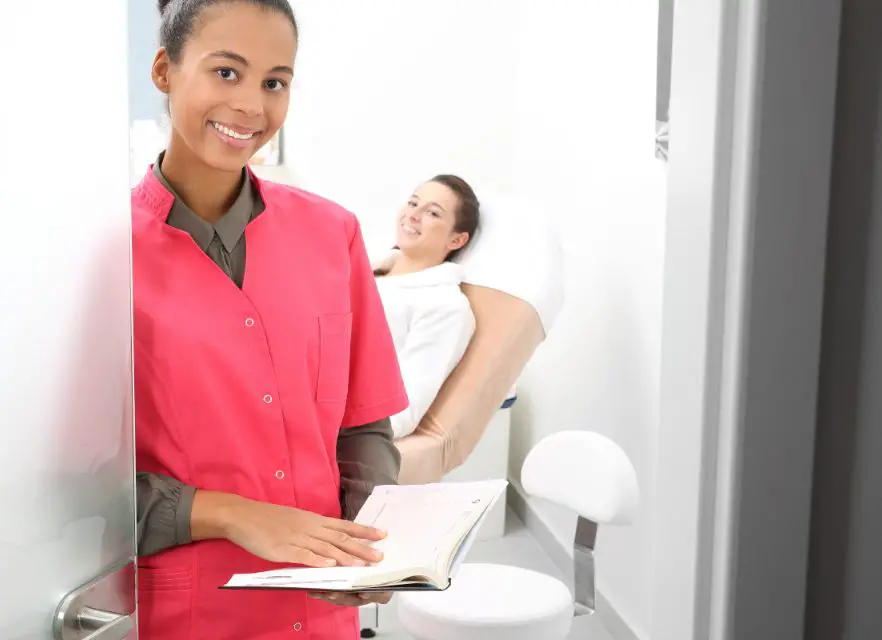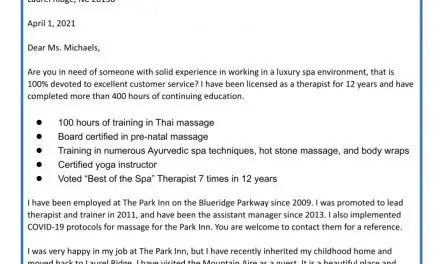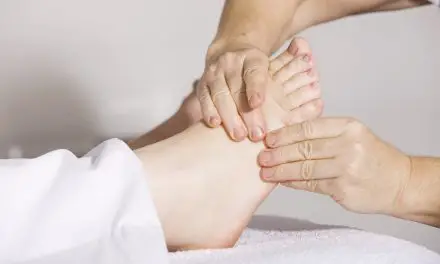There are many websites that tell massage therapists what to expect from a job interview from the employer’s perspective, but few massage schools teach the therapist how to interview the employer. There are questions that you are better off knowing the answer to before you agree to accept a job, which is a much better situation than realizing that you have made a mistake by taking a job that doesn’t suit you.
Ideally, you should find a job that aligns with your skills, personality, and personal values. That is why it’s important to ask the right questions during the interview, as well as having a job-landing resume and cover letter. You don’t want to feel like you have made a big mistake in accepting employment, especially after being on the job for a short time. If you’re sitting in the interview feeling like you wouldn’t be happy in the work environment and meeting the employer’s expectations, it’s probably best to keep looking for the right job.
That may be anything from feeling there isn’t enough time to do a proper intake with clients, to feeling like the management may expect you to massage everyone who comes in the door, even if they have a serious contraindication.
An owner or manager who is personally a licensed massage therapist is probably less likely to operate in that manner, but you need to know what you’re getting into before finding out that something you object to is actually a company policy.
Question 1: How much time is allotted per client?
Many massage places are on the 50-minute plan, giving five minutes for intake, 50 minutes on the table, and five minutes for the client to exit. Sometimes the establishment may describe the service in their marketing as a full-hour massage. It’s less than ideal, but it is a reality.
If a client has a concerning issue on their intake form, it may take longer than five minutes to ascertain whether or not they should even be getting a massage.
For example, an elderly client with an injury or chronic pain condition may take longer than five minutes to get undressed and get on the table. It’s the same story at the end of the massage.
You may not know that if it’s your first time seeing them. If you are self-employed, you can probably accommodate that, but when you are an employee, you work under the company’s rules.
If those are the rules you are expected to abide, you may have to finish your intake questions after they actually get on the table, or be prepared to give up some of your own time between clients to make an informed decision and allow the client the time they need, which leads us to the next question.
Question 2: How much time is the massage therapist allotted between appointments?
You need to change the room, and when something like the current COVID-19 pandemic is making extra sanitation measures necessary, that involves more than just changing the sheets. Plus, you need to use the restroom and wash your hands.
If you are personally sanitizing the touchable surfaces in the room and changing the sheets, you need to wash your hands again after that is done. You need a drink of water or maybe a quick snack, and if you eat anything, you’ll need another hand washing or use the hand sanitizer. Half an hour is ideal between appointments because 15 minutes to be ready for the next client doesn’t leave much recovery time.
Question 3: How many clients will I see on an average day?
If you are just starting your career, six clients a day might sound great to you. If you have already been practicing for a few decades, you may prefer a less demanding schedule than six people a day who all want deep tissue massage.
Career longevity is maintained by pacing yourself. For example, it is easier to see six people in a day if a few of those appointments are for deep tissue massage, a couple are for lighter Swedish massage, and a couple are hot stone massage.
You’re better off to be honest with the interviewer about your capabilities if you don’t feel comfortable committing to whatever number they throw out there. They may still have an interest in hiring you part-time or splitting your time between doing massage and working the front desk.
Question 4: What is your policy on clients who are sexually inappropriate?
If the answer to this question is anything other than, “You do not have to continue the massage,” don’t take the job!
There are a couple of ways to handle an inappropriate comment or action. No massage therapist should have to put up with clients who put their hands on you, bump and grind on the table, masturbate, expose themselves to you, or ask you how much is a happy ending. Tell them their session is over, they should get dressed, and go to the front desk to check out.
If it is more subtle, such as a less blatant but flirty comment that sounds like a red flag to you, or movement on the table that seems suspicious, you can remove your hands from the client, take a step back, and politely say, “I need to inform you that I only provide therapeutic massage and I don’t put up with any sexual comments or behavior. We can continue the work if you abide by those rules, but if you can’t do that, we need to end this session now. I’ll go out so you can get dressed and you can check out at the front desk. It’s your choice.”
Bear in mind that if an occasional client gets an erection who does not acknowledge it at all, acknowledges it as if they are embarrassed about it, or is snoring like a hibernating bear at the time, there’s no reason to get upset over that or call them out unless they actually start to act or talk inappropriately about it.
You should never have to feel threatened during a massage. A manager or owner who has the attitude “just handle it yourself and finish the massage” is not a person you want to work for.
Question 5: What is your policy on massage therapists and clients who come in when they are sick?
If the massage therapist or the client is genuinely sick, they don’t need to be in an enclosed room where the therapist is putting their hands on them, close enough that they’re breathing on each other and touching the same surfaces.
Either person could wind up making co-workers, other clients, family members, or other contacts sick if something contagious gets passed on. Now that we’ve all found out how much a pandemic can affect the entire world, we can’t afford to be careless.
Question 6: What is your policy on a client who has contraindications?
An oldie but goodie adage: If the client is in control of the condition, go ahead. If the condition is in control of the client, don’t massage.
There are such things as definite contraindications for massage, such as:
- an infectious disease of any kind, including an infectious skin condition;
- any systemic condition that is affecting the whole body of the client, such as kidney disease; fever above 100.4°F (30°C), which is a clear sign that the body is fighting off an infection;
- a new and acute injury (think of the client who called and said they were rear-ended in a car accident an hour ago and can you please work them in to help the pain in their neck?);
- DVT (deep vein thrombosis);
- severe hemophilia or chronic thrombocytopenia with panic-value platelet counts (even very light touch can cause severe bruising).While most pregnant women are fine to get prenatal massage, a woman who is having a complicated pregnancy, particularly one who has been ordered to complete bedrest (and thinks it’s okay to get up from that to get a massage), should not be massaged.
In instances where the business owner or manager may not be a massage therapist themselves, you need to know who has the final word on whether the client can safely receive a massage or not.
Massage forums are full of stories from therapists who have been told to massage someone or they would be fired. Being fired is preferable to ignoring our mandate to first do no harm.
Happy job hunting
Hopefully, you’ll find the position you want, with an employer who has integrity and treats their employees well, and who has policies and procedures that spell things out in a manner that is fair to everyone — therapists and clients alike. We all want to work for someone who appreciates what we do and who recognizes the value we can bring to their business.
If you’re fresh out of school, what you lack in experience can be made up for with politeness, enthusiasm, and giving good customer service.
Dress professionally when you go for your job interview. Answer the questions the interviewer asks you before you jump into asking the questions you have for them.
Avoid complaining about your last job (or anything else). If you are offered a job on the spot, and you are inclined to take it, thank them, and then do the best job you can because if you asked these questions, you know what you are getting into.
If you’re not inclined to take it, do not be judgmental but say something like “I appreciate the offer and I thank you so much for your time, but I don’t think this will be the right fit for me.”
If they ask why, be polite and honest, and say, “Thank you for considering me, but I don’t think I can do six massages a day.” They may negotiate for what you really want.
Best of luck in finding the job that’s right for you!

Laura Allen, LMT
Laura Allen is President of Sales & Marketing of CryoDerm. A graduate of Shaw University and The Whole You School of Massage Therapy, Allen has been a licensed massage therapist since 1999 and an Approved Provider of Continuing Education under the NCBTMB since 2000. She has taught classes all over the U.S., Canada, and Europe.
She is the author of The Educated Heart, Cultural Crossroads of Healthcare and Healing, and numerous other books. Allen resides in North Carolina with her husband, James Clayton, and their two rescue dogs.





